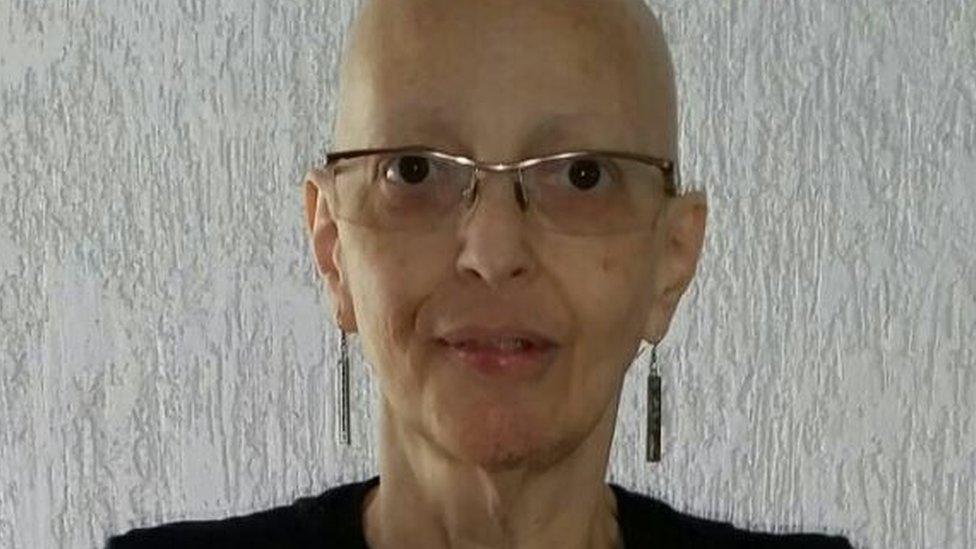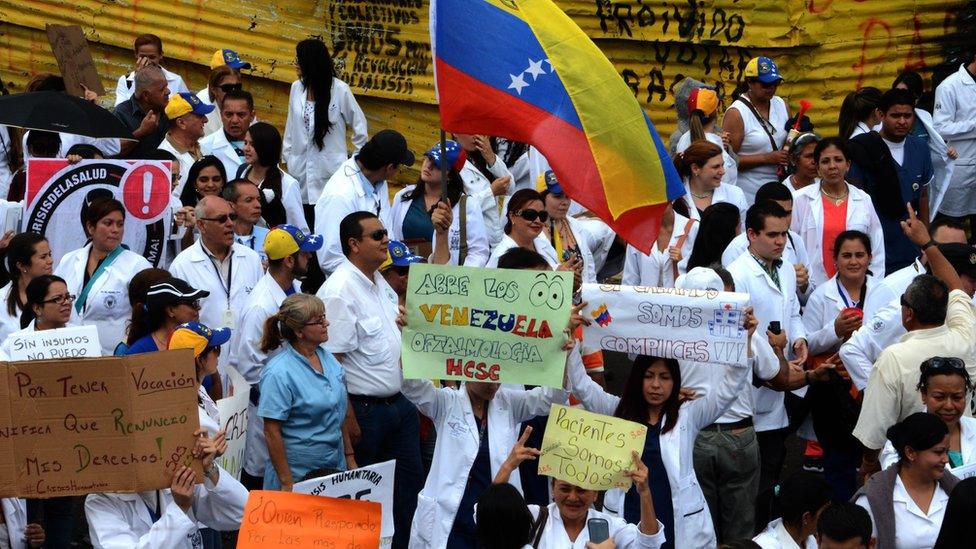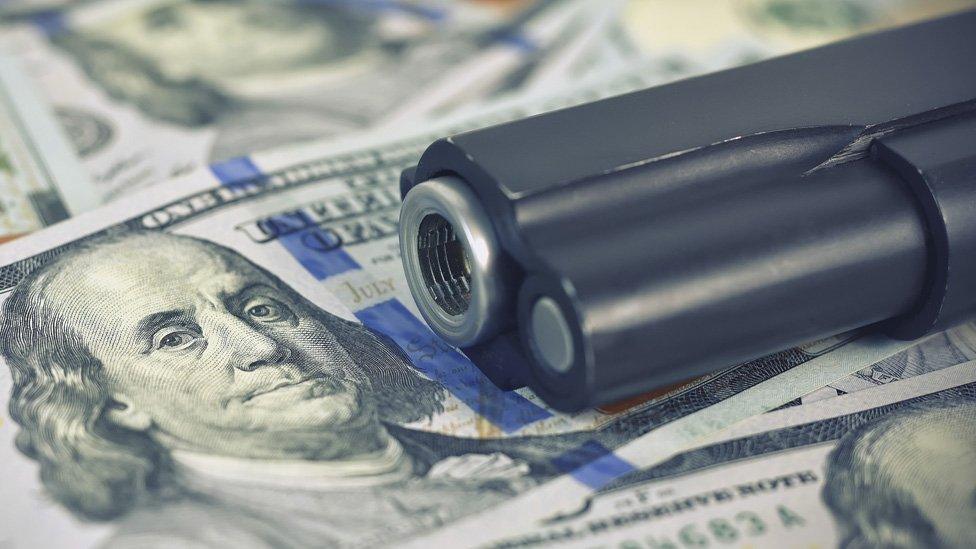Searching for life-saving medicines online
- Published

Olga Ramos was forced to crowdsource medicines online when she was diagnosed with cancer
Patients in Venezuela are being forced to turn to social media to crowdsource potentially life-saving medicines. Around 80%, external of drugs are currently in short supply in the country, with hospitals and pharmacies struggling to find stocks of HIV and cancer treatments, insulin for diabetics and even basic painkillers.
That's why this week a group of charities started the hashtag #UrgeAyudaEnSalud or Urgent Health Aid, hoping to gain international attention for the current situation. It was soon picked up and used around 14,000 times.
Medical shortages are the result of a long-running financial crisis in the country, partly fuelled by the drop in the price of oil, which forms Venezuela's main export. But over time the situation has escalated. One doctor (who wanted to remain anonymous) working in a major hospital in the capital Caracas, told BBC Trending that last week the only drugs they had to treat patients were two antibiotics. People travel to hospital to "almost wait until they die" she added.

Medical personnel demonstrated on the border town of San Cristobal on May 30, 2016 to highlight medicine shortage
If a hospital can't provide the medical care needed, patients are left with two choices. Either they can turn to the black market and potentially pay three or four times the going rate for a treatment, or they can look to online networks.
Olga Ramos has taken the social media route. She was forced to look online for her prescribed medicine when she was diagnosed with cancer. Luckily in her case, Olga had friends outside Venezuela who were able to set up a crowdfunding campaign for her. They managed to raise the funds to buy her treatment in Colombia before sending it to her.

Listen to our radio programme on BBC World Service

Others aren't so lucky. In researching this story we found private Facebook and Whatsapp groups or Twitter hashtags like #ElCancerNoEspera (Cancer Does Not Wait) and #donatumedicamento (Donate Your Medicine) where patients are broadcasting the drugs they're searching for. Anyone who has leftover pills from a previous illness can then send them to those in need.
There are issues. Old drugs which are past their expiry date can be ineffective or even harmful. Some organisations told us that they act as middlemen, checking for donated pills' expiry dates and asking for prescriptions from those receiving medicine to ensure it doesn't end up being resold on the black market. But it remains a matter of trust.
Whatever the effectiveness of online support networks, many believe more is needed. The doctor we spoke to said that there are "a lot of hashtags on the internet but I think that's not enough for us. We need help. The help is not coming."
International aid has been offered, external to Venezuela from countries like Brazil, but it's been rejected by the government, who say, external they are taking steps to tackle the crisis (including providing medicines where they can through the health service and buying in raw materials to make more drugs). They say they would consider the intervention of aid agencies as an invasion of Venezuelan sovereignty, external. Time will tell whether that position is reversed.
Blog by Kate Lamble and Gabriela Torres
Next story: Is Facebook doing enough to stop private gun sales?

Facebook vowed to clamp down on potentially dangerous private gun sales on its site. But is this happening? READMORE
You can follow BBC Trending on Twitter @BBCtrending, external, and find us on Facebook, external. All our stories are at bbc.com/trending.